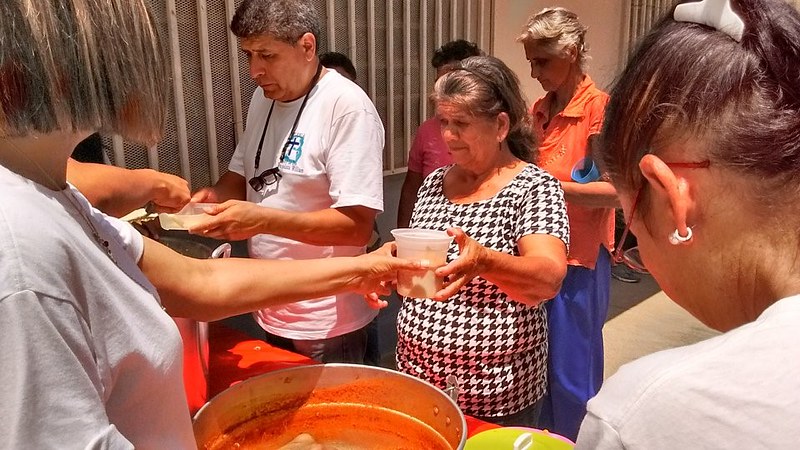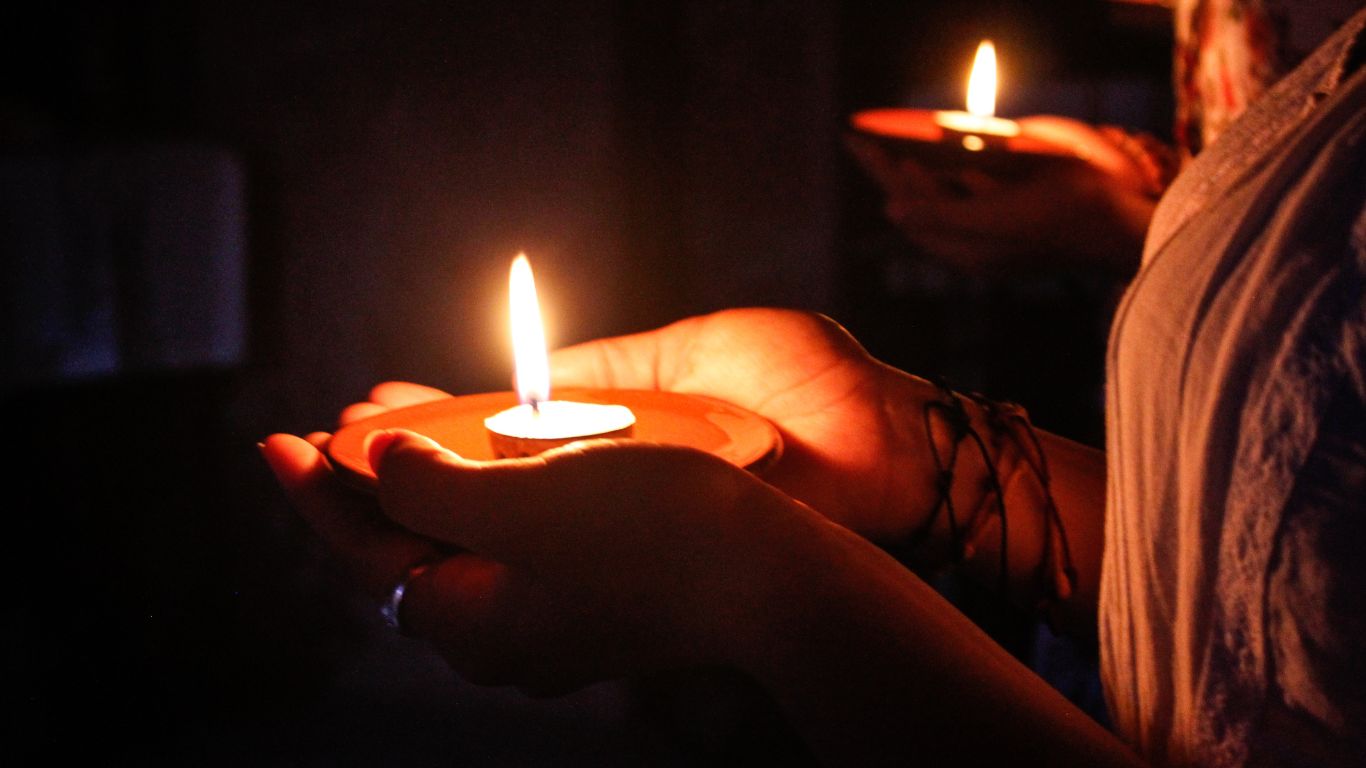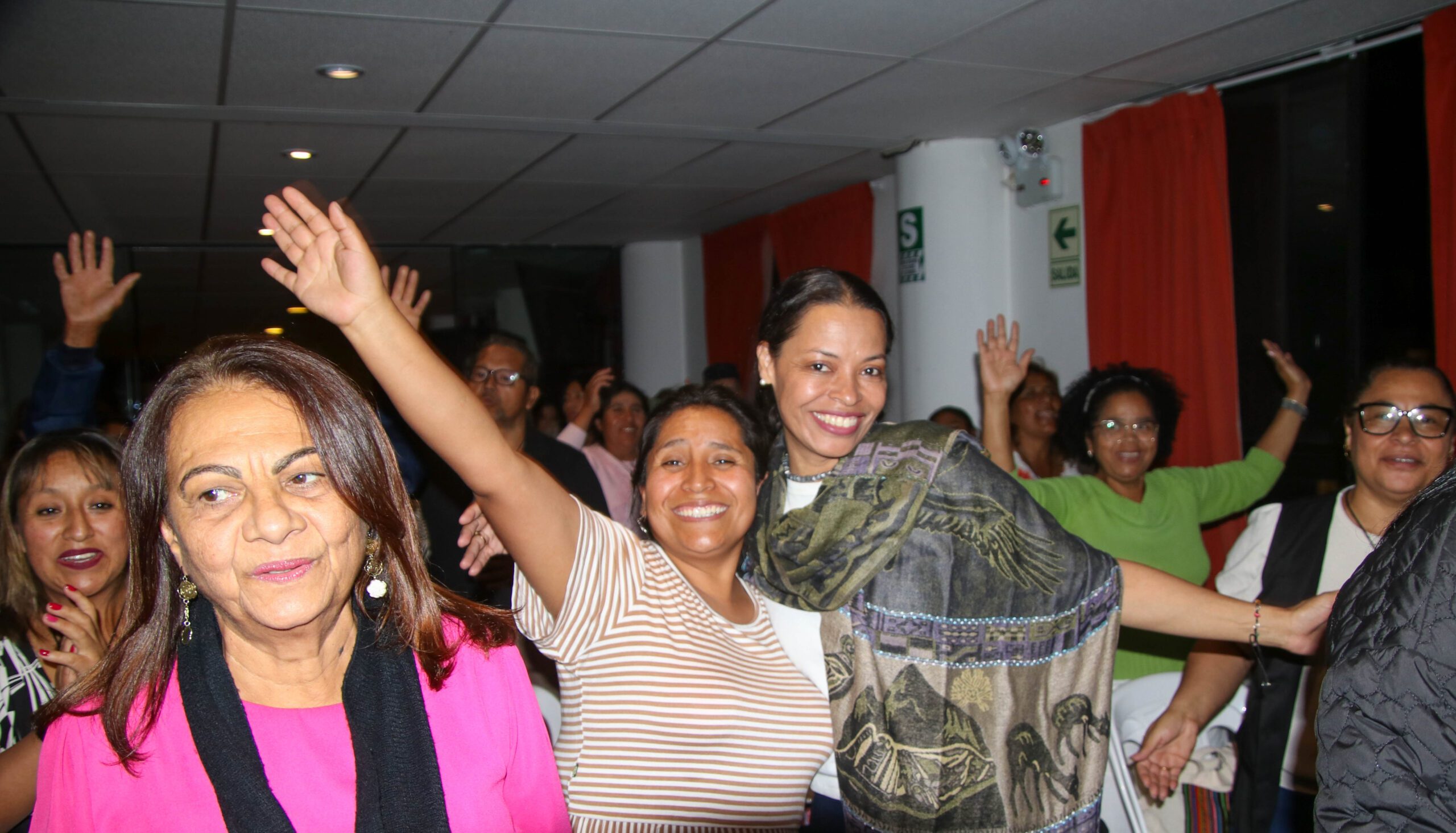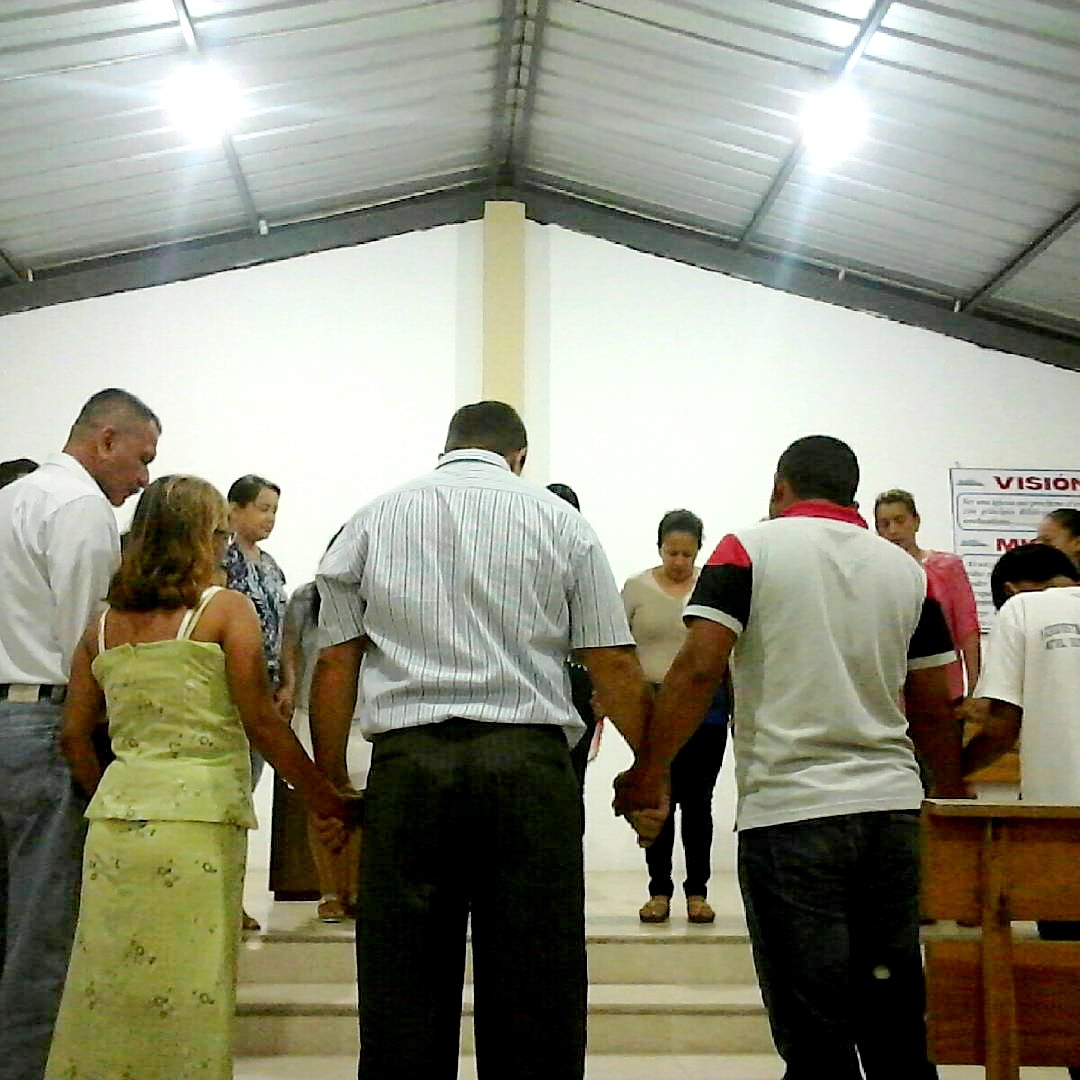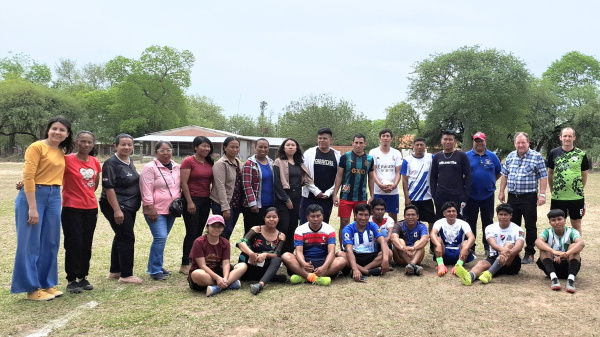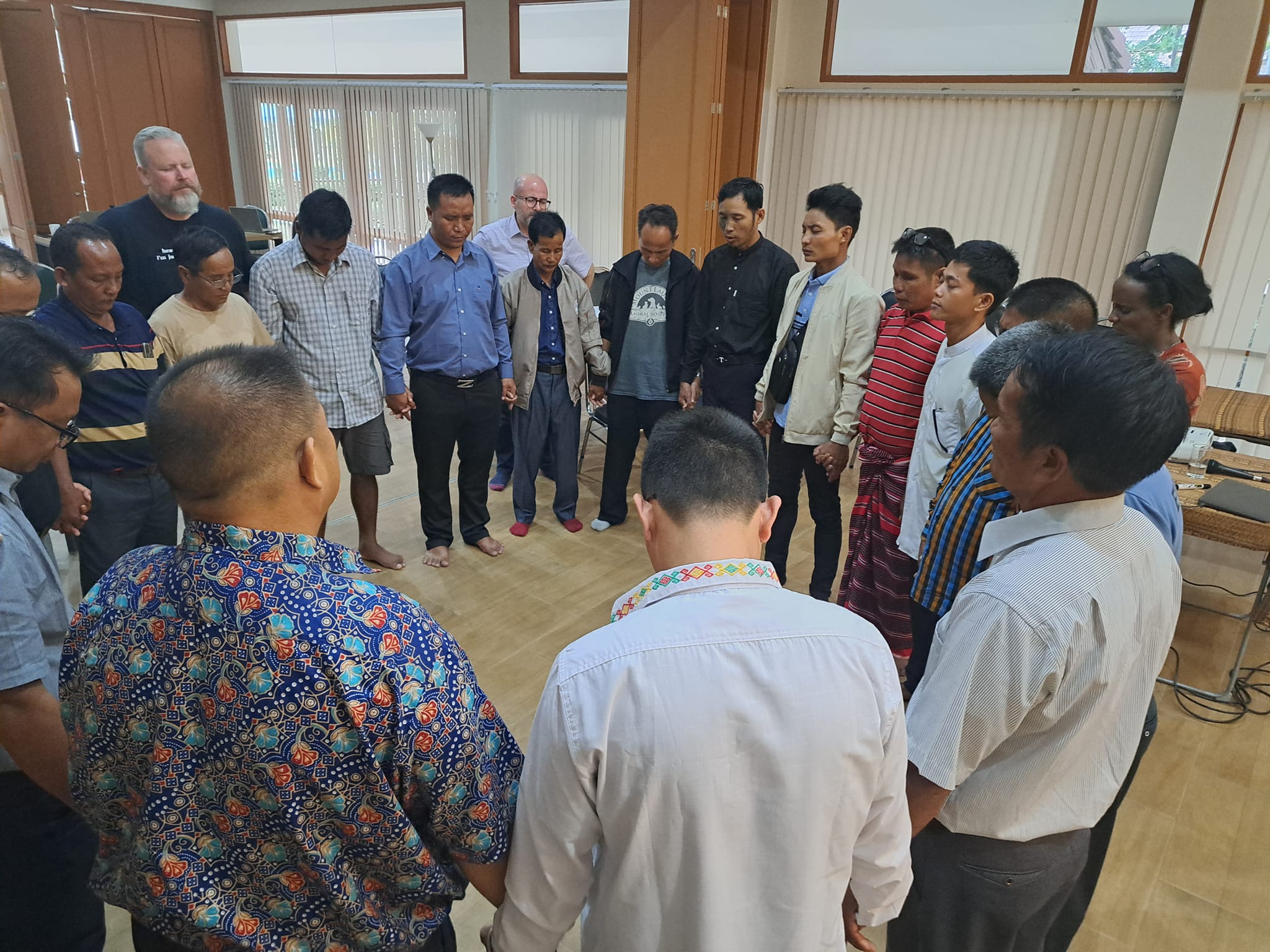-
A pastoral letter regarding Anabaptists in Venezuela
Beloved sisters and brothers Mennonite World Conference calls on all its members to join in prayer for our sisters and brothers in Venezuela. On 3 January 2026 at 2 a.m. local time, the USA bombed military bases in the capital city Caracas and in the states of Miranda, Aragua and La Guaira. The USA military
-
Anabaptist voices in a world on fire
Perspectives (Anabaptism@500 activities) Panel discussion Under the title Standing Between the Lines in a World on Fire, voices from five continents gathered on May 29 at the Friedenskirche. On the occasion of the 500th anniversary, they debated a burning issue: how to remain faithful to the Anabaptist heritage of peace and nonviolence in a world
-
A pastoral letter of remembrance and mourning
7 October 2025 is the tragic anniversary of an outbreak of violence that has led to hundreds of thousands of lives lost in the lands called Israel and Palestine and also in the larger region.
-
What does it mean to be a Peace Church?
Peace Sunday 2025 – Testimony A story of the church in Myanmar What does it mean to be a Historic Peace Church – or, rather, a church dedicated to the ways of Christ’s peace? This is the question that the Mennonite church in Myanmar wrestles with as the ongoing conflict there continues to affect many
-
Redrawing our relationships of proximity
Peace Sunday 2025 – Teaching Resource Sermon on Matthew 22:34–40 “Vecino” or “vecina” (neighbour). This is one of the ways we refer to the different people around us in Bogota, Colombia, whether they live in our building, the house next door, or we meet them in a store or other shared and public places. We
-
A pastoral letter regarding war in the Middle East
Beloved sisters and brothers: The escalation of war in the Middle East today is a source of fear and grief for our Anabaptist family around the world. For some, this is a new reality, for others it adds to the burden of violence carried for years or decades from local conflict. We see all of
-
A pastoral letter from Anabaptists in Ecuador
A state of “internal armed conflict” has been declared in Ecuador since January 2024. The government continues to struggle against violence from organized crime groups. The three Mennonite national churches in Ecuador – Iglesia Evangélica Menonita Ecuatoriana (IEME – MWC member church), Iglesia Cristiana Anabautista Menonita de Ecuador (ICAME), Iglesia Cristiana Menonita (ICME) – call…
-
Building peace between Bantu and Batwa
Alarming situation: discrimination and violence “We understand that God doesn’t discriminate,” says Nathan Mudiji, “but that before God, everyone must acknowledge their sin and do their best to repair the relationship broken because of sin.” In the DRC, the Batwa (an indigenous people mainly settled in the Equateur and Mai-Ndombe provinces), suffer discrimination and inhumane
-
Building peace with holistic services
Courier: Perspectives Latin America: Paraguay This mission of ASCIM (Association of Services within the Indigenous-Mennonite Cooperation; Associacion De Servicios De Cooperacion Indigena – Menonita in Spanish) is to promote socio-economic growth in Indigenous communities through partnership programs in education, health, economy and socio-spiritual orientation and thus supports harmonious intercultural coexistence. ASCIM grew out of evangelization
-
Four peacebuilding stories in fifth film
“We live in a complicated world. Erosion of trust and breakdown in relationships are all too common. The good news is that as abundant as conflict may be, so is the commitment within Anabaptist Mennonite communities around the world to follow Jesus’ call to work for justice and to make peace,” says Max Wiedmer, producer
-
A pastoral letter regarding legal action for the protection of religious liberties
Beloved sisters and brothers We call you to prayer for our siblings in the USA who are taking legal action that seeks to restore the rights of people of faith to gather, worship and serve without government interference. Mennonite Church USA joins more than 20 Christian and Jewish communities in this action. The current presidential
-
Yesterday’s martyrs inspire those who suffer today
“Their commitment to passing down the message of peace and the gospel inspires me to live a sacrificial life for peace.” Stories of the early Anabaptist martyrs have shaped and inspired Mennonites around the world for 500 years. They continue to do so for suffering pastors in Myanmar, like the one quoted above. From 25-29
